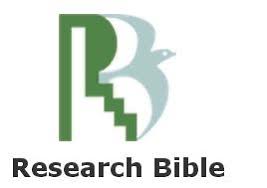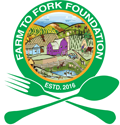Growth and yield response of hybrid maize to arbuscular mycorrhizal fungi inoculation and zinc fertilizer management
DOI:
https://doi.org/10.5455/faa.126949Keywords:
AMF, hybrid maize, yield, zinc, foliar sprayAbstract
An experiment was conducted at the Agronomy Field Laboratory in Bangladesh Agricultural University to evaluate the effect of arbuscular mycorrhizal fungi (AMF) inoculation and zinc (Zn) fertilizer management on growth and yield of hybrid maize Kohinoor 1820. The experiment consisted of two levels of AMF inoculation (AMF-inoculated and non-inoculated) and five levels of Zn fertilizer management. The Zn management regimes were NoZinc = no Zn fertilizer (control); Basal100 = 100% recommended dose (RD) of Zn fertilizer (i.e. 15 kg ZnSO4.7H2O ha−1) added during final land preparation; Foliar100@EV = 100% RD of Zn was applied as foliar spray during early vegetative (EV) stage; Folar100@Rp = 100% RD of Zn was applied as foliar spray during reproductive (Rp) stage; Foliar@50EV+50Rp = 100% RD of Zn fertilizer was applied as foliar spray by equal split during EV and Rp stages. ZnSO4.7H2O @15 kg ha−1 was used for basal application and 0.1% of the same fertilizer was used as foliar spray. The experiment was laid out a factorial randomized complete block design (RCBD) with 3 replications. ‘Serakinkon’, a commercially available AMF inoculum collected from Japan was used in the experiment. The inoculum mainly consisted of Gigaspora margarita species of AMF. It was found that both AMF inoculation and Zn fertilizer management significantly affected leaf greenness (SPAD value), number of cobs plant−1, number of seeds cob−1, weight of 1000 grains, and grain yield (all p<0.05). The highest maize grain yield was obtained from the AMF inoculated plots when Zn was foliar applied during both early vegetative and reproductive stages (50%EV + 50% Rp) or foliar applied (100% RD) during reproductive stage. It appeared that only AMF inoculation boosted 15% maize yield in comparison to non-inoculated crops. Zn fertilizer management increased 16% grain yield over control (no Zn applied). Further research should be conducted on the screening of naturally occurring AMF strain suitable for maize crop.
Downloads
Downloads
Published
How to Cite
Issue
Section
License
Copyright (c) 2021 by the author(s). This work is licensed under a Creative Commons.

This work is licensed under a Creative Commons Attribution-NonCommercial 4.0 International License.





















